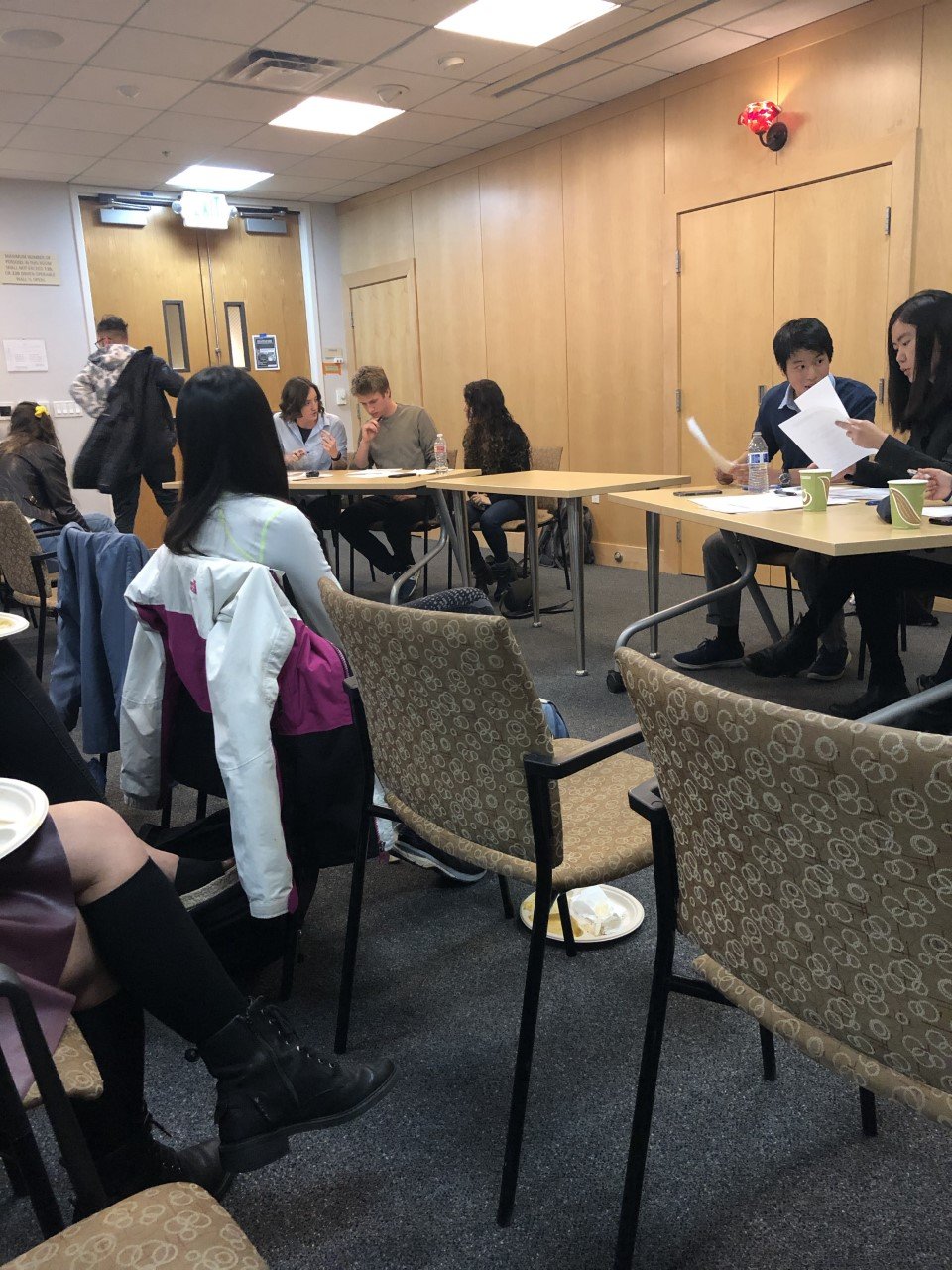The Stanford Debate Society (SDS) and the Stanford Ethics Bowl team squared off over the question of whether journalists should censor their political speech at a Wednesday night debate sponsored by the Stanford Center for Ethics in Society.
The event, which fused traditional debate and ethics bowl competition formats, centered on the motion “This House would allow journalistic organizations to prevent their employers from expressing partisan political speech.” The Stanford Ethics Bowl team supported the motion, arguing that self-censorship would lead to objective coverage and higher standards. SDS served as the opposition, arguing that the motion would restrict journalists’ freedom of speech and exacerbate polarization.
In opening, the Stanford Ethics Bowl commented on the importance of objectivity in journalism to allow people to form their own opinions.
“We think critical engagement with the world is incredibly important to the human experience and to any flourishing society,” said Amanda Orbuch ’20. “Minimally, what we need to get to that is the marketplace of ideas that comes from objectivity.”
The Stanford Ethics Bowl team broke down its vision for better journalism into the pillars of thoughtfulness and conscientiousness. Thoughtfulness, the team argued, was about making sure that journalists thought critically about the content they produced, while conscientiousness centered keeping an open mind and admitting fault.
JD Pruett ’23 and Sarah Yribarren ’23 said the absence of these pillars fueled and exacerbated polarization and partisan habits. Orbuch proposed the creation of a third-party review board that would review the objectivity level within a news source and force self-regulation.
SDS then refuted the censorship and third-party review proposals, arguing that regulation would cause readers to flock to more radical news sources.
“If public trust in the media is low, if you think journalists are being censored, you are going to go towards other news sources that reflect your politics,” said Senkai Hsia ’23.
SDS also stressed the importance of freedom of speech for journalists.
“Even if we could get perfect journalism, censorship violates the fundamental rights of journalists,” Hsia said.
Orbuch shot back, stating that the board of reviewers would serve as an in-between for the extremes of government censorship of free speech and journalistic bias. Yribarren added that the review would work like a scientific board, encouraging individuals to submit their work to claim legitimacy and ultimately disseminating more accurate ideas to the public.
Enshia Li ’22 disagreed, contending that such a board would not be feasible insofar as major news companies who profit off of partisan news would have little incentive to join, while Hsia argued that even if organizations did submit, this perceived objectivity would just mask inevitable bias.
In a section of the debate that consisted of rapid-fire questions and answers between the two teams, Vivian Zhu ’23 asked the Ethics Bowl team why they supported journalists being stripped of their rights to free speech.
Yribarren responded by stating that not only journalists’ rights were at stake here.
“The whole point of journalism is to offer information for people in the general public so that they can make critical evaluations and form their own opinions,” she said.
Pruett chimed in, adding that, “We view journalism as the foundation under which people can exercise their first amendment rights.”
The two teams differed most strongly in their realms of thought. Of the Ethics Bowl, Pruett said, “we operate in a theoretical, asking what should be, and the other side is thinking what is.” SDS countered this by encouraging the Ethics Bowl team to think about incentives of news organizations and whether censorship of individual journalists would result in objective coverage.
“Nonpartisan social media presences do not guarantee objectivity in news articles and news publishing,” Zhu said. “We say that thoughtfulness and consciousness should be something that we aim for but not something that we legislate and end up screwing up.”
The Ethics Bowl team concluded the round by circling back to the importance of working towards objectivity.
“How can we have good critical engagement in society if we don’t have facts and information upon which to have good discussions?” Pruett asked. “If everybody is operating with different information, how are we going to progress as a society?”
Contact Sarina Deb at sdeb7 ‘at’ stanford.edu.
